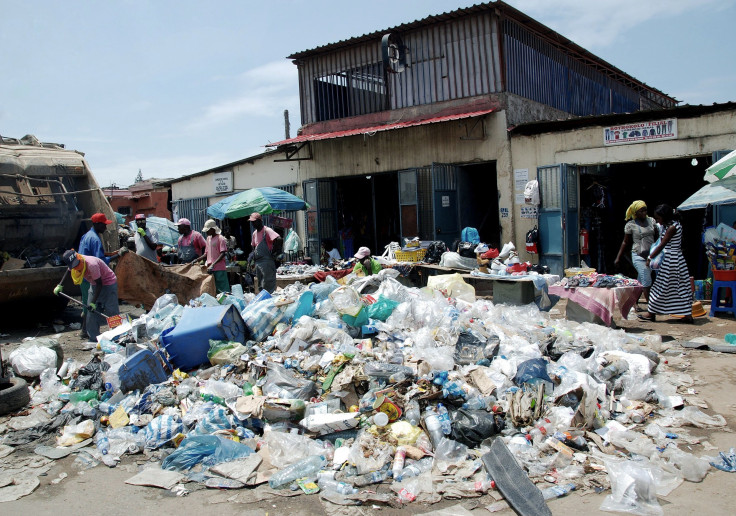Angola's Yellow Fever Outbreak Death Toll Rises To 158 Amid Luanda's Sanitation Crisis

A yellow fever outbreak in Angola that started late last year has claimed 158 lives, with a majority of the deaths from the disease occurring in the past month alone, the World Health Organization said Friday. Most of the victims were residents of the bustling capital Luanda, which has seen an increase in malaria, cholera and chronic diarrhea, due in part to deteriorated sanitation conditions.
"This is an urban pattern of outbreak of Yellow Fever, and it is much more complicated to tackle and deal with," Hernando Agudelo Ospina, the World Health Organization representative in Luanda, told Reuters. "The possibility of spreading out to other provinces or even to the all country is much higher than if it had happened in a rural area."
The yellow fever virus is transmitted when a mosquito bites an infected monkey and then bites a human. Two types of mosquitoes, one of which is responsible for the Zika virus, can pass on the disease. Fever, nausea, vomiting, muscle pain and loss of appetite are among the symptoms related to yellow fever, which make it easy to confuse for malaria or other mosquito-borne illnesses. There is no treatment for the deadly disease, though patients can seek supportive care, according to CNN.
The yellow fever outbreak was first registered in Luanda in December, and the disease has remained largely confined to the sprawling city and its suburban areas, home to some 6.5 million people. But Luanda is on the verge of a sanitation crisis, which could further spread the disease.
Local authorities recently slashed their budget for garbage collection to cope with an economic crisis that stemmed from low oil prices and cooling demand from China. Mounds of trash now line the streets, marketplaces and backyards across Luanda and its rundown suburbs.
“We have this level of garbage that is so high here, and then we have also been hit by rains. And we have the overflowing waste accumulated here, bringing flies, other insects and parasites,” Kyala Junior, a Luanda resident, told Africa News last month.
Angola, Africa’s second largest oil producer, relies on crude exports for about 95 percent of its foreign exchange revenue. The oil-dependent economy hit the brakes when China’s benchmark Shanghai Composite Index recorded its steepest single-day slump in eight years last summer. At the same time, oil prices have plummeted since mid-2014 due to a surplus of crude on world markets, sending Angola’s kwanza currency tumbling and necessitating the government to make deep cuts in public spending.
© Copyright IBTimes 2024. All rights reserved.





















